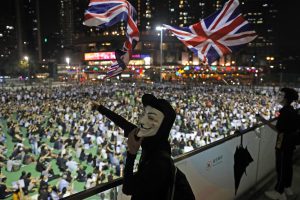On July 1, 1997, Britain handed over the sovereignty of Hong Kong to the People’s Republic of China and the Hong Kong Special Administrative Region (HKSAR) was founded. Although Hong Kong ceased to be a British colony on that day, memories of the colonial era have never become obsolete. Instead, political discourse on British colonialism in Hong Kong has intensified in the last two decades.
In particular, Hong Kong has recently witnessed the emergence of colonial nostalgia. Many started discussing fond memories and disseminating positive historical narratives about British colonialism in post-colonial Hong Kong. The discourse about colonial rule in Hong Kong has shifted.
How is the colonial era now remembered by various sectors of society? And how do these collective memories differ from the actual British colonial rule in a historical sense?
Remembering the Colonial Era in Post-Colonial Hong Kong
Before the 2010s, colonial nostalgia was not visible in political discourse in Hong Kong. For example, in protests against the SAR government’s proposal of a National Security Law in 2003, activists and protesters made few references to the colonial legacies of Britain. Remarks and comments on Hong Kong’s colonial era, however, began bubbling up in the 2010s, when there were increased tensions between the government and activists, who believed that the Chinese government was increasingly interfering in Hong Kong’s political system, society, and cultural life.
For instance, in the movement against the introduction of Moral and National Education reforms by the Education Bureau in 2012, some students started displaying a favorable view toward British colonialism in Hong Kong. Some believed that the colonial government was “more democratic” compared to the SAR government. In some of the demonstrations, colonial flags were even waved by protesters.
This phenomenon could also be found in later social movements, such as protests in the Umbrella Movement in 2014 and the Anti-extradition Bill Movement in 2019. Some activists even started advocating to pressure Britain to “fulfill her duty” to Hong Kong and intervene in the protests – directly calling for the British government to engage itself in the city’s politics once again.

































